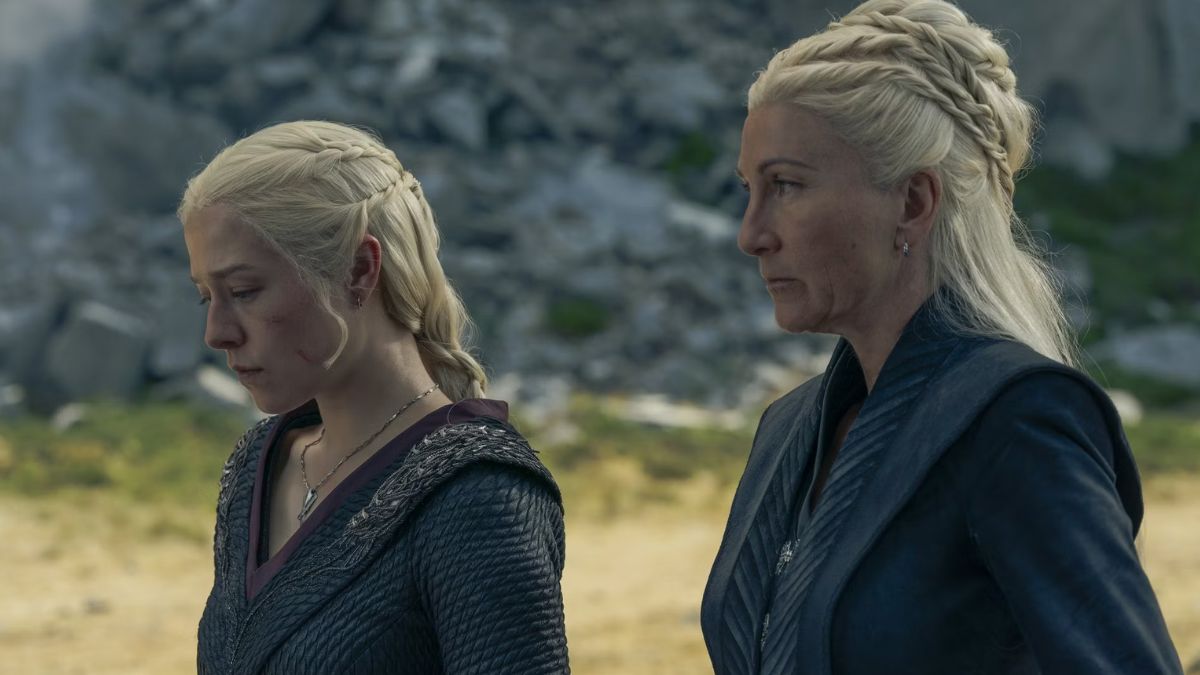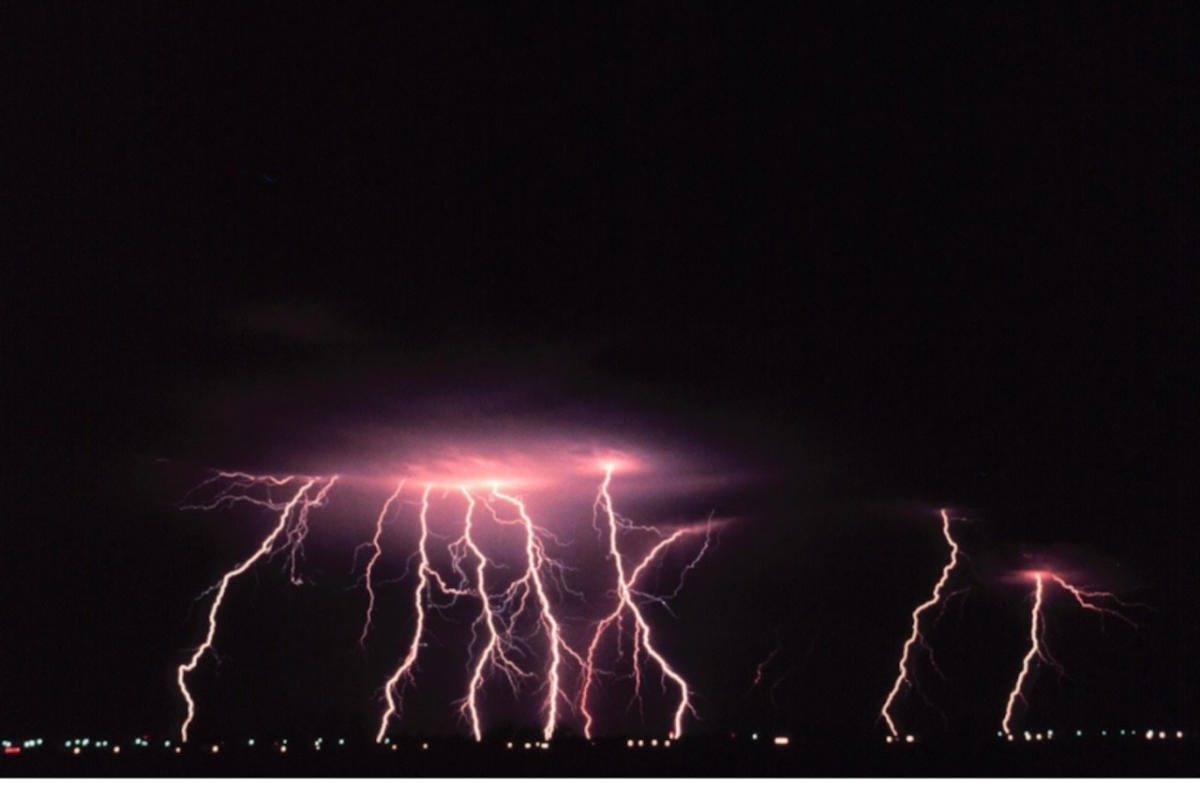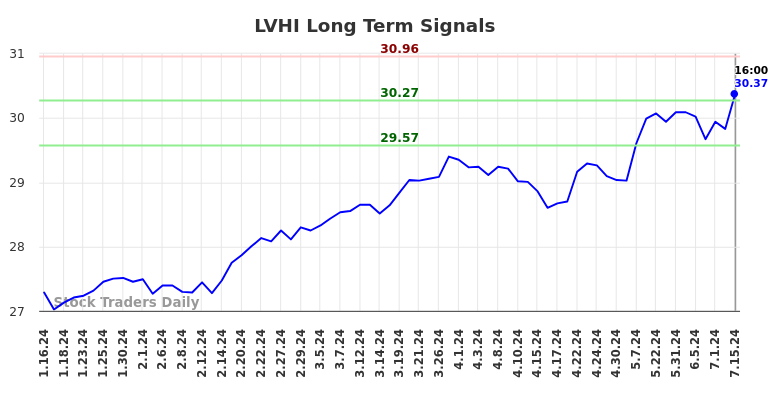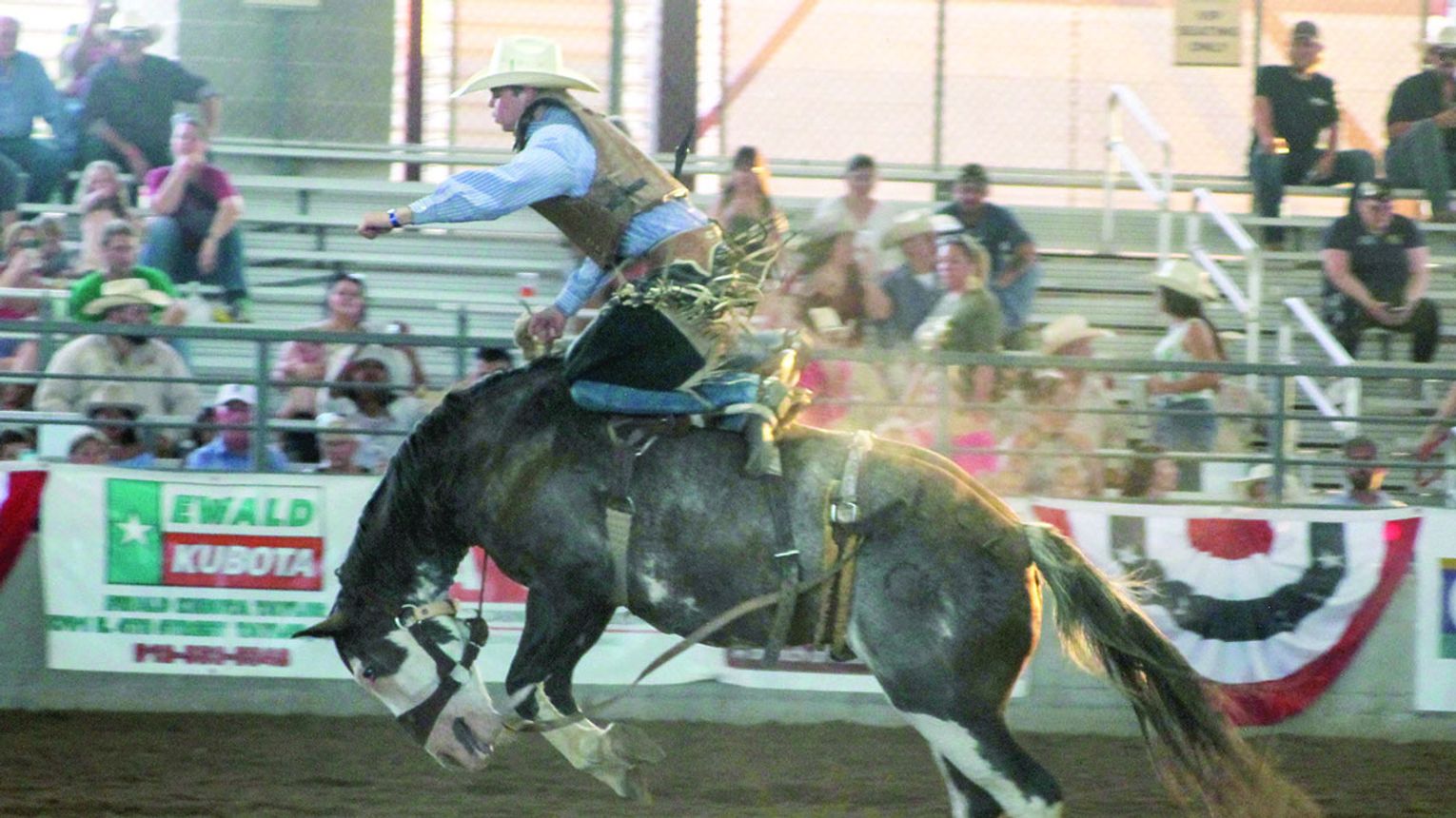How House of the Dragon refuses to glorify war

The third episode of the second season of House of the Dragon“The Burning Mill”, understandably left the fan community in complete confusion – not that this is an unusual occurrence in such a polarized fan base as the HoTD First, let’s be honest.
Still, as someone who watches the episode and then spends about five hours surfing around various social media to see how the fan discourse is going, I have noticed some discussions that I think are worth analyzing. And so House of the Dragon has decided on war.
The costs of (nuclear Dragon) War
Spoilers for Season 2, Episode 3 of House of the Dragon“The burning mill”. Be warned!
While extradiegetic – that is, outside the story, on our side of the screen – it is understandable that we are all waiting pretty much for the moment House of the Dragon will feature some good dragon fights and let us see them beat each other up in the sky, I think it is also important to remember that it is not the same intradiegetic.
It’s actually not a bad idea to make the main players so reluctant to unleash a full-blown war, and a dragon war at that. This episode made it very clear that dragons are being compared to nuclear weapons, a parallel that the fanbase has been drawing for some time. Rhaenyra says that the fear of dragons is enough to keep the fighting at bay – so wouldn’t it make sense for those in power to try to find a solution that doesn’t involve razing the realm to the ground and keeping fire and blood as a last resort?
That’s actually part of why Rhaenyra goes to Alicent, and also an important storytelling realization from that particular scene. She needs to exhaust all possible options for peace before turning to the dragons on her side. She needs to understand that there is no other way to move on. Sure, she could give up her claim—something she shouldn’t do, to be clear—but even that might not be enough now, not when both sides have already lost children.
What I don’t understand is how part of the fan community says that this Rhaenyra is a step backwards from the character who was in Fire & Blood. If anything, the incredible restraint she shows is a testament to what a good ruler she could be among the monarchs in Westeros – someone who would wait until the last possible moment before ordering her own land and her own people to be burned to the ground. That sets the bar a little low, but considering how many other people have sat on the Iron Throne, she’s still pretty much a saint.
Why should we want Rhaenyra to be like she was in Fire & Blood? Let us all remember that this book is supposed to be a chronicle of the universe, written more than a century after the actual events of the dance by a man who also took the view that the best decision for the empire was to prohibit women from independent rule.

This Rhaenyra is cruel and vengeful, more a caricature than a real person – and it’s not that this Rhaenyra doesn’t hold on tightly to her power. Is she talking about giving up her claim? No, she’s still firmly convinced that she deserves to sit on the Iron Throne. She wields her power in a different and more realistic way.
The endless cycle of violence
And that is because violence only breeds more violence, and once there is enough of it, it is impossible to stop it. That has always been one of the main points of A song of ice and fire as a whole – because I am sure we all agree that if there is anything George RR Martin not In his works he tries to glorify war or feudal monarchy.
This was all illustrated so perfectly in this episode – and in fact, so much of “The Burning Mill” is about this concept – right from the opening scene. A fight between young boys, based on a feud so old that no one remembers how it started, that turns into an argument about who has more right to sit on the throne, that turns into a battlefield full of corpses and for what? War is pointless and useless and ultimately benefits no one, and that is something that House of the Dragon desperately tries to go home.

Princess Rhaenys – whose lines mostly feel like a way for the showrunners to get their message across to the audience – expresses the same sentiment in her dialogue with Rhaenyra that prompts her to travel to King’s Landing. Once the avalanche of violence begins, it doesn’t matter what started it or who was in the right, there are only bodies and death.
And no, from course she doesn’t literally say that Luke was to blame for stabbing Aemond in the eye. This is yet another example of how blame can be endlessly shifted just to indulge in violence, and how once the violence has occurred, people never agree on what exactly caused it, only seeing the actual destruction the violence has left behind.
It’s not lost on me that it’s the women in the show who are reluctant to go to war, while most of the male leads can’t wait to get started. This is completely understandable considering how everyone was raised – men in Westeros are taught practically from birth that violence is their right. In turn, women are subjected to this violence more than once, so naturally they want to try and prevent a war across the realm.



